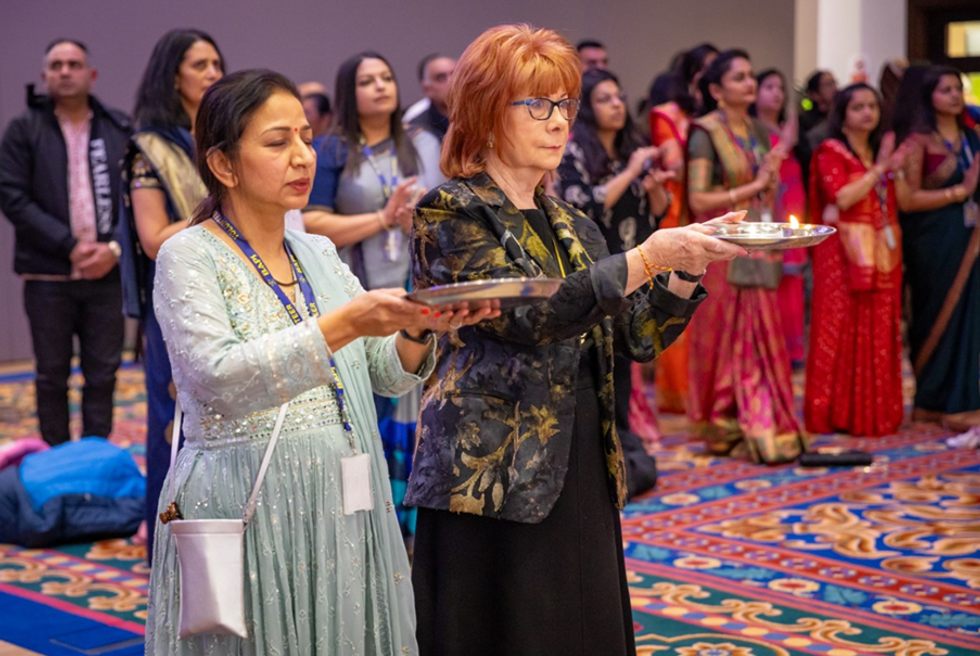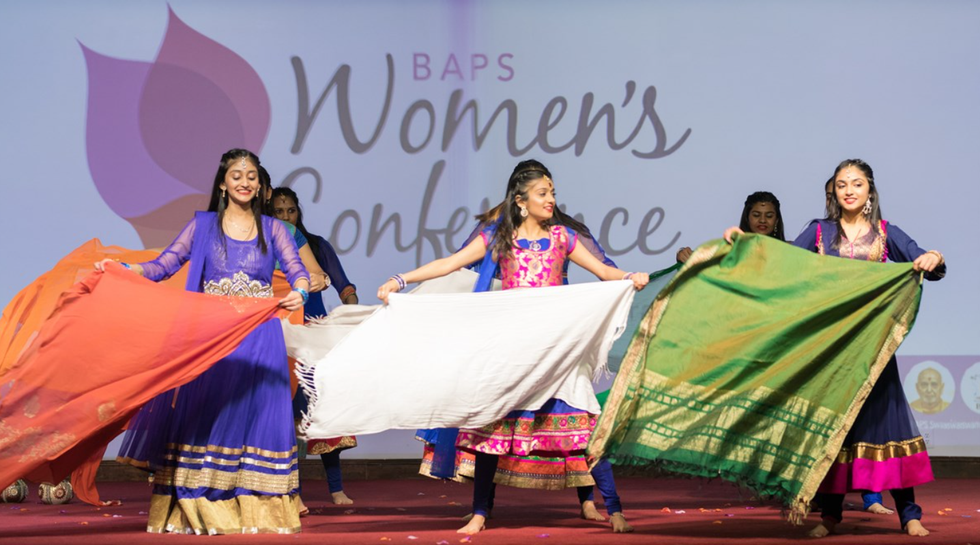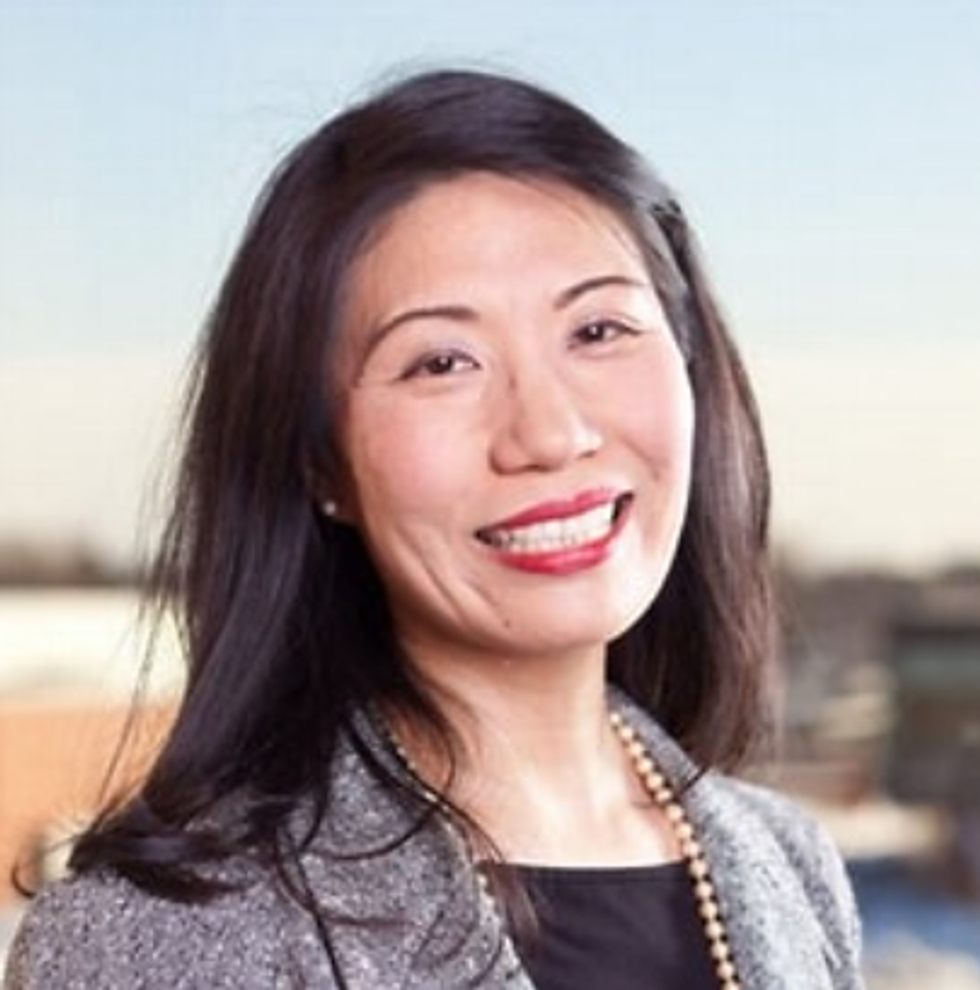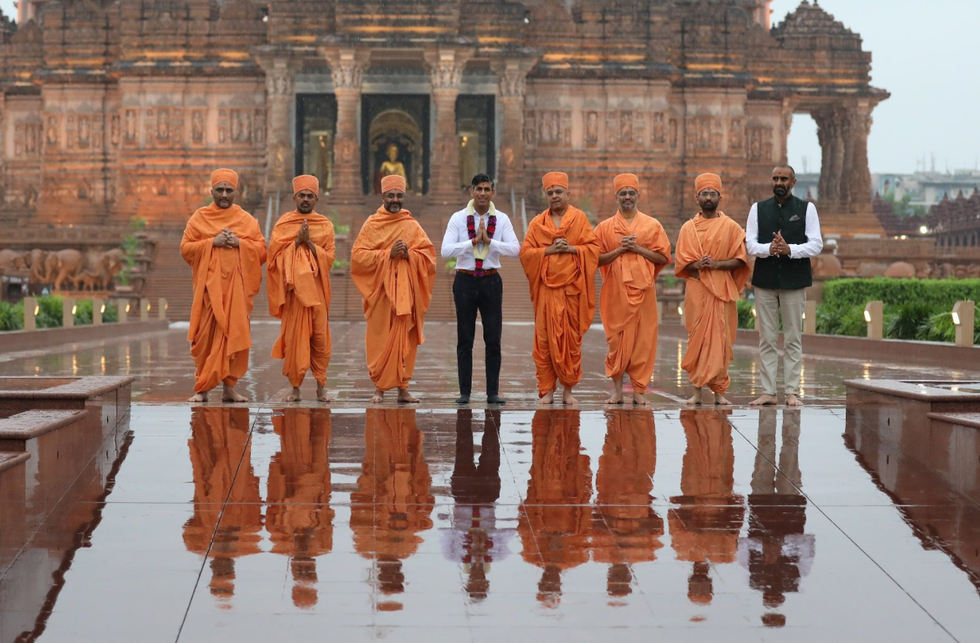IN the dynamic landscape of international relations, the influence of non-state actors, including transnational religious organisations, plays a crucial role in shaping a nation’s global standing. India, with its rich tapestry of religious diversity, has witnessed the emergence and growth of various such organisations that contribute significantly to the country’s rise on the world stage.
BAPS Swaminarayan Sanstha sits prominently among these organisations, with its multifaceted endeavours, blending spiritual teachings with humanitarian initiatives, cultural diplomacy, diaspora engagement and interfaith dialogue.
Established in 1907, the organisation has grown into an international spiritual and social service institution with a substantial global following. Its newest temple in Abu Dhabi, the first traditional Hindu stone temple in west Asia, offers opportunities for cross-cultural understanding and dialogue with the predominantly Islamic societies in the region, while projecting India’s soft power, not just in the region, but around the world.

And this has been stated in no uncertain terms by India’s top diplomat himself.
“I know that as people who live in this country its value is something you cannot even describe, but I want you to understand that it is something that the rest of the world is also watching,” Subrahmanyam Jaishankar, India’s external affairs minister, told a group of volunteers and contributors during his visit to the temple site in August 2022.
The spiritual oasis of harmony
The temple aligns with Indian prime minister Narendra Modi’s vision for India’s spiritual leadership on the global stage, with harmony being a key theme of the project right from the beginning.
“It’s a great message to the world, that harmony is the way forward, and without it, perhaps we have no future,” comments Swami Brahmaviharidas, who headed the construction of the temple.
“That’s why the mandir has been also sublimed as BAPS Hindu Mandir, a spiritual oasis for global harmony, and its people together, from all walks, all countries, and all religions, actually created this harmony.”
Swami Brahmaviharidas also credits the rulers of the UAE for sharing this message of harmony and religious tolerance.
“I believe India has been respected. But this has been built out of pure friendship, love, and it’s founded on values, without negotiations and rights. Those are not the parameters at all. It’s about a great responsibility of the rulers who have actually embraced the needs of the people and the responsibility of religious people to actually create something for followers and believers and faithful. And it’s a very big step,” he says.

“Of course, it’s based on Indian values. But it’s also the graciousness and the grace and the heart of this nation. It’s made in India and made in UAE.”
The temple has incorporated the message of inclusivity in its design, which features intricate carvings of Hindu avatars and rishis, as well as cultural and moral value tales from ancient civilisations, as a true testament to its commitment to fostering unity and harmony among all peoples, regardless of their backgrounds or beliefs.
“We decided to take around 14 incidents from ancient civilisations which talked about harmony and friendship,” Swami Brahmaviharidas explains.
“So we have an incident from Arabic culture of King Solomon carved. We have a beautiful story from the Mayan culture, of the two Aztecs who are constantly fighting and the purpose or the moral of the story is that, in friendship, we flourish; in war, we perish. And we have a story from Chinese civilisation. That of the Egyptian civilisation is almost done in the form of hieroglyphics. It’s all carved on the temple.”
It’s an expression of ‘Vasudhaiva Kutumbakam’, which has now become the central approach of India’s foreign policy, exemplified in India’s G20 presidency, held last year with the theme ‘One Earth, One Family, One Future’, a creative translation of the Upanishadic concept.
Engaging with diverse communities
This inclusive approach has been a key hallmark of BAPS as the organisation spread around the world, notes Hanna Kim, professor of anthropology at New York’s Adelphi University.
“There’s enormous effort, really notable effort on the part of every BAPS temple community to work with local community members,” she says.
“Everywhere you see, like Robbinsville Akshardham, years of cultivating trust, building community connections, and so whatever legal troubles – it’s in there in the background – there are all these people in the community who support BAPS.”
Kim, whose book The Globalization of a Modern Hindu Community: Ethnographic Chronicles on the BAPS Swaminarayan Sanstha will be published by Routledge later this year, highlights two factors that shaped the nature of the relations be tween BAPS and societies outside India - the primacy of temple in the devotional scheme, and their status as a micro-minority.
“The BAPS Swaminarayan Sanstha has, from its origin, placed an emphasis on the mandir as the house of bhagwan and guru. Their primary objective is to teach their upasana, to teach their form of bhakti, which is a pretty distinctive one: it’s both guru and bhagwan. And that’s why they need mandir, because the mandir, in the garbhagriha, will show in the most material, peaceful, obvious form, that devotion is to both guru and bhagwan. So, from the very beginning, the emphasis is on ensuring, as any community might be, the sustainability of their devotional tradition,” she explains.

For the local community, the temple becomes a visible representation of Hinduism, and by extension, India, and would contribute to fostering goodwill towards the country. However, this has put BAPS, one of the branches of the Swaminarayan sect founded in the early 19th century, in an interesting position, she notes.
“I would say that rather than beginning from the position that BAPS is trying to, sort of, blend being Hindu with being Indian, in many ways, this is an artefact. It’s a consequence of migrating to places where they are minority community,” Kim observes.
“They are obviously having heritage from South Asia, subcontinent of India, and the consequence of this is that as a minority community, majority community, meaning Americans, they want to know, like, where are you from, why do you wear tilak, chandan, why do you wear bindi, why do you eat the way that you do.”
As BAPS started to build shikhar mandirs in the 1990s, these architectural marvels obviously became increasingly identified with Hinduism, but Kim says the organisation always ensured to bring other Hindu denominations on board.
“Let me use the UK example because the first shikhar mandir (outside India) was in the UK, built in outer London. After it was inaugurated in 1995, everyone of note, from local government, from the national UK government and of course, to the royal family, when you need to address the Indian community, or to say some nice words about Diwali, where do you go? Neasden Mandir,” she says.
“This was not BAPS saying ‘hello, you come to us because we are representative of all of the Hindus in India’, and BAPS Mandir community in London made huge efforts to ensure that ISKCON and the many other older British Hindu communities don’t feel that somehow BAPS is kind of trying to take over.”
This ecumenical approach towards the religion, and engaging with the wider society, particularly through its humanitarian initiatives and participation in community forums, has made BAPS a visible partner in building civil society in Western multicultural societies. Kim thinks it could be interesting to see how they would reprise this role in west Asia.
“[There are] workers, people whose lives are actually pretty low on the economic scale, and then there are extremely wealthy Indians living in the region. Is there something BAPS can do, looking forward, to build some bridges between these different classes, caste groups,” she ponders, adding: “I like to remain optimistic.”
Volunteering in statecraft
India’s diaspora is a vital asset in its global ascent, and of late, BAPS has taken an active role in mobilising the diaspora community as the Indian government, particularly under PM Modi, started to actively seek to engage with them.
BAPS volunteers helped Indian missions in the US and the UK with crowd management during Modi’s addresses at Madison Square Garden and at Wembley stadium, respectively. They have also provided crucial support in rescuing Indian students trapped in the crossfire of Russia-Ukraine war.
Jaishankar, while addressing a gathering as part of Pramukh Swami Maharaj centenary celebrations in January 2023, has been profuse in praising their effort.
“When the war erupted in Ukraine, around 20,000 Indian students were stranded in the cold. They needed to be brought home. While the Indian government was trying to decide what to do, BAPS brought volunteers from 11 countries to the Polish border and served hot meals three times a day,” he said.
“We will never forget BAPS’ contribution in rescuing them… I was meeting other ministers of bordering countries who still remember the selfless spirit of BAPS volunteers who helped not only other Indians but people of other countries and ethnicities.”

At the same time, Kim cautions that it would be wrong to see BAPS as an arm of the government, for the organisation has a clearly articulated policy on working with those in power, developed right from its start.
“There is something extremely consistent all the way back to the Swaminarayan sampradaya, which of course exists before BAPS, to core texts all the way to the early 19th century, meaning the Shikshapatri in particular, there is very clear sense that Swaminarayan satsangis should have good relations with people in positions of power,” she says.
“It’s not written like that, that’s today’s language. And if necessary, if one is being disturbed by those in power, then there should be no hesitation to get up and move on.”
She notes that BAPS has not hesitated to develop relationships with institutions, legal systems, and those in positions of power, and it goes all the way back to the relationships with the collectors and other administrators during the British colonial rule, but the primary motivation, she contends, remained the need to buy land and build temples.
It essentially shows the organisation has a strong foundation to maintain a ‘detached attachment’ stance to the state, and navigate disparate political dispensations, which they have been demonstrating across the world, particularly in the last three decades. And by blending spiritual teachings with humanitarian initiatives, cultural diplomacy, diaspora engagement, and interfaith dialogue, BAPS contributes significantly to projecting a positive image of India on the global stage.
As India continues to assert itself in the international community, while striving to promote the concept of Vasudhaiva Kutumbakam, the role of organisations like BAPS becomes increasingly relevant in shaping a more harmonious and interconnected world.

















 Kulsuma Aktergetty images
Kulsuma Aktergetty images
Police may probe anti-Israel comments at Glastonbury